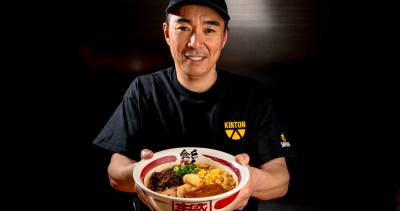Rachel Marcuse: Let's share power and put an end to ageism
By Rachel Marcuse
I was sitting at my desk in Jenny Kwan’s campaign office on May 12—provincial election day—when a Google alert popped up for “COPE”. I clicked on the link and found an article on municipal politicians and staff doing work for the NDP. It described me as “the young, energetic woman who helped run COPE’s successful 2008 civic campaign”. Young? Check. Woman? Check. Energetic? Most of the time.
I would dismiss the description as journalistic colour if it weren’t for the fact that this article was perhaps the 10th piece that described me using my gender and age. So, why is it that the journalist—and a very good one, too—commented on these particular details?
These two characteristics, coupled with my leadership role in progressive partisan politics, do make me somewhat special. But I shouldn’t be.
Young people are involved in all sorts of interesting, progressive pursuits. Kat Braybrooke (velocityblog.tumblr.com/) recently wrote an articulate rebuttal to the assumption that young people are apathetic: “Youth activists, movers and shakers do exist today—we just may exist in a more fluid, ever-shifting, and hard to define realm than our predecessors did at our age. We are loudly and proudly in existence at a variety of protests around the world, we engage in culture-clashing activities, we read zines and ride bikes instead of cars, we go to see politicians speak and have beers with them afterwards, we fight, debate, argue, and resist what we dislike on blogs, twitter, facebook and livejournal. We are thinking of new ways to engage, new conceptualizations, and new types of inspiration—and we are not silent.”
Kat and I agree that young people, for the most part, are not involved in electoral politics. Why? Lots of reasons: an unresponsive electoral system, uninspired campaigns, mistrust of politicians (and their ubiquitous egos), a belief that grassroots activism is a better use of one’s energy, multiple systemic barriers, a sense that folks in party politics have “sold out”. These are all arguments that I understand. Most I’ve made myself.
But there’s something else going on that operates as a barrier to young people becoming involved in electoral politics: ageism, often tinged with sexism. It’s complicated, and something I’ve heard from countless young people. Some older politicos find themselves in a difficult position: they know they need us “young’uns” to keep their organizations relevant. But they can be loath to give up their power and leadership.
Many older political leaders view us with distrust: “Why are there so many of them here?” Or with condescension: “I believe in something called paying one’s dues.” Or we’re just agents for others: “I hear they’re puppets for the labour bosses.”
Although some of this may be understandable, many “young’uns” are involved in progressive politics for the same reasons older folks are: we don’t want more conservative governments whose policies mean that we won’t be able to afford to live in Vancouver. We’re ashamed that our province has had the highest levels of child poverty in the nation for six years running. We’re terrified that in 50 years, we’ll have to figure out a way to live at the bottom of the sea.
Should we have to pay our dues? Of course. But believe it or not, some 25-year-olds have been activists for more than a decade. Though that might not compare with others’ 40-year activist careers, it’s time to develop intergenerational partnerships and start to share power.
I sense ageism from some of the backroom boys in electoral politics and sometimes from the public. (One of my favourite recurring statements: “You’re the boss?”) Young elected politicians may experience ageism in even more direct and patronizing ways. I recently overheard a B.C. Liberal cabinet minister tell NDP MLA Spencer Herbert that he’s a “young upstart” who should “respect his elders”. Respect, yes, but that doesn’t mean shutting up until you’re over 40.
I have to admit that some of the organizations I’ve worked with have milked my age and gender. However, I’m lucky that many of my colleagues—of various ages—are committed to meaningful youth engagement beyond the token “Look young and diverse as the cameras come by!” Although I do hear snarky remarks, I’ve had decision-making power in much of the work I’ve done.
We’ve introduced less hierarchical structures, incorporating consensus—something new for some of the older generation, who were taught that children should be seen and not heard. I have a lot of privilege—with regard to my class, ethnicity, et cetera, and my luck at finding thoughtful colleagues—but a lot of young people are still bumping up against the traditional structural and attitudinal barriers.
Many will put their energy into art, education, journalism, community organizing, and so on. And that’s wonderful; different sorts of activism shouldn’t be ranked. But those of us who decide to put our energy into electoral politics (and I hope more will) need the space to make some of the decisions and do some of the leading.
We’ll bring our youth and our “energy”. It will be great!
Rachel Marcuse is executive director of COPE, but isn’t writing on behalf of the party. She managed NDP MLA Jenny Kwan’s election campaign in Vancouver–Mount Pleasant.















Comments
3 Comments
whatever
Aug 24, 2009 at 3:06am
what a hilarious joke. Does every generation pat themselves on the back and assure themselves that they are, despite all indications, activists at heart? There is no hope for the future. The staggering power of late capital has not just crushed any hope of political reform; it has erased the very possibility from our vocabulary. Keep dreaming.
shepsil
Aug 24, 2009 at 3:39pm
Rachel, thanks for your thoughts. I was also a campaign mgr., but in the burbs, for the NDP. As a member of the most privileged group in NA today (white, male, & 54) , and the youngest member of our executive prior to May/09, I (we) recognize the importance of increasing our membership for anyone under 54 and female. Mind you, we have great support from those who are 1st generation to Canada.
Ageism in some areas is complicated by the demographics as well. Our area has a very low percentage of 19-28's staying in the burbs after high school. Identifying the specific challenge is the first step, now we have 4 years to implement our strategies to make the next election winnable.
Stephen Kawamoto
Aug 25, 2009 at 3:50am
Today's youth are still brainwashed, and the ones going on to become teachers need to unlearn 12+ years of public education (propaganda) before teaching children. Otherwise, they only rehash the propaganda they learned as children.
For the reason why the alternative to first-past-the-post politics failed is because of propaganda.
And so is ageism.